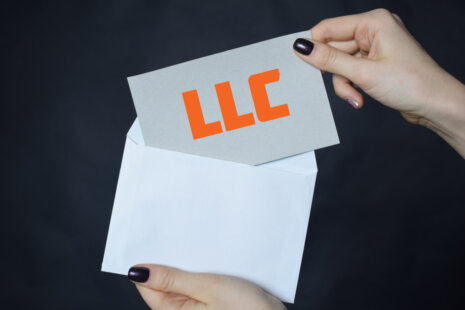The best tax form for an LLC depends on several factors, including the number of owners (members), how the LLC elects to be taxed, and the business’s financial situation.
Here are the main options for LLC tax forms…
- Single-Member LLC (Disregarded Entity) –
- If the LLC has only one owner (member), it is typically treated as a “disregarded entity” for federal tax purposes. This means that the IRS does not recognize the LLC as a separate entity, and the owner reports business income and expenses on Schedule C of their personal tax return (Form 1040).
- This is the simplest tax filing option for single-member LLCs, as it avoids the need for a separate business tax return.
- Multi-Member LLC (Partnership) –
- If the LLC has more than one owner (member) and does not elect to be taxed as a corporation, it is automatically classified as a partnership for federal tax purposes.
- Multi-member LLCs file an informational tax return using Form 1065 (U.S. Return of Partnership Income). This form reports the LLC’s income, deductions, credits, and other relevant tax information, but the LLC itself does not pay income tax. Instead, profits and losses are allocated to the individual members based on their ownership percentages, and each member reports their share of the LLC’s income on their personal tax return.
- Each member receives a Schedule K-1 (Partner’s Share of Income, Deductions, Credits, etc.) from the LLC, which outlines their allocated share of the LLC’s income, deductions, and credits to report on their personal tax return.
- LLC Electing S Corporation Taxation –
- An LLC can choose to be taxed as an S corporation by filing Form 2553 (Election by a Small Business Corporation) with the IRS. This election allows the LLC to be treated as an S corporation for federal tax purposes.
- S corporations file Form 1120S (U.S. Income Tax Return for an S Corporation), which reports the corporation’s income, deductions, credits, and other tax information. However, similar to a partnership, the S corporation itself does not pay income tax. Instead, profits and losses pass through to the individual shareholders, who report their share of the S corporation’s income on their personal tax returns.
- Shareholders of an S corporation receive a Schedule K-1 (Shareholder’s Share of Income, Deductions, Credits, etc.) to report their allocated share of the S corporation’s income, deductions, and credits on their personal tax return.
- LLC Electing C Corporation Taxation –
- An LLC can elect to be taxed as a C corporation by filing Form 8832 (Entity Classification Election) with the IRS and then filing Form 1120 (U.S. Corporation Income Tax Return) as a C corporation.
- C corporations are subject to corporate income tax on their profits, and shareholders are also taxed on any dividends distributed to them from the corporation.
Choosing the best tax form for an LLC involves considering various factors, such as the business’s ownership structure, tax implications, reporting requirements, and long-term goals. It’s crucial to consult with a tax professional or accountant who can evaluate your specific circumstances and provide guidance on the most advantageous tax treatment for your LLC.




